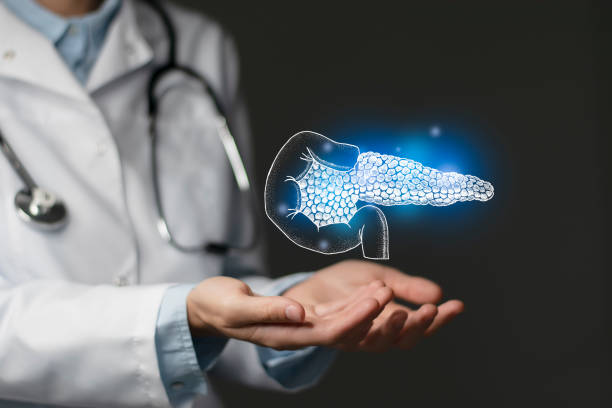
Introduction
GLP-1, short for Glucagon-like peptide-1, is a naturally occurring hormone in the human body known for its role in regulating blood sugar levels. Beyond its well-known effects on diabetes management, recent research has highlighted its potential in treating gastrointestinal (GI) disorders. This article explores how GLP-1 works, its therapeutic applications in GI disorders, and the future implications of this treatment approach.
Understanding GLP-1 and Its Mechanism
GLP-1 is primarily produced in the intestines in response to food intake. Its main function is to stimulate insulin release from pancreatic beta cells, which helps in lowering blood sugar levels after meals. Additionally, GLP-1 suppresses glucagon secretion, delays gastric emptying, and promotes satiety, making it an integral part of managing diabetes and potentially influencing GI health.
The Role of GLP-1 in Treating Gastrointestinal Disorders
Recent studies have indicated that GLP-1 receptor agonists, synthetic compounds that mimic the action and basic of GLP-1, may offer therapeutic benefits beyond glycemic control. These agonists have shown promise in treating conditions such as gastroparesis, a disorder where the stomach takes too long to empty its contents, leading to nausea, vomiting, and other symptoms. By delaying gastric emptying and promoting proper motility, GLP-1 agonists can alleviate symptoms and improve quality of life for patients suffering from GI disorders.
Potential Benefits and Clinical Applications
In clinical trials, GLP-1 receptor agonists have demonstrated efficacy in reducing symptoms of gastroparesis, including nausea and abdominal discomfort. These medications not only target symptoms but also address underlying mechanisms such as impaired gastric motility and dysregulation of gut hormones. This dual action makes GLP-1 therapies a promising option for patients who have not responded well to traditional treatments.For more information visit brightmeds.com.
Future Directions and Considerations
As research continues to uncover the broader effects of GLP-1 on GI function, future treatments may expand to include other disorders such as irritable bowel syndrome (IBS) and functional dyspepsia. Understanding the intricate balance of gut hormones and their impact on digestion and metabolism could pave the way for more targeted therapies that improve both GI health and overall well-being.
Conclusion
In conclusion, GLP-1 receptor agonists represent a significant advancement in the treatment of gastrointestinal disorders, offering relief to patients experiencing symptoms like gastroparesis. By leveraging the hormone’s dual action on insulin regulation and gut motility, these therapies provide a holistic approach to managing both diabetes and associated GI complications. As research progresses and more clinical data emerges, the potential for GLP-1 in transforming GI care remains promising.
FAQs
1. What is GLP-1 and how does it relate to gastrointestinal health?
GLP-1 is a hormone known for its role in regulating blood sugar levels and promoting insulin release. Recent research suggests it also influences gastric motility and may help in treating gastrointestinal disorders like gastroparesis.
2. How do GLP-1 receptor agonists work in treating gastroparesis?
GLP-1 receptor agonists mimic the action of natural GLP-1, helping to regulate stomach emptying and reduce symptoms such as nausea and vomiting in patients with gastroparesis.
3. Are GLP-1 therapies effective in managing both diabetes and gastrointestinal symptoms?
Yes, GLP-1 therapies not only control blood sugar levels but also improve gastric motility, making them beneficial for patients with diabetes who also suffer from gastrointestinal complications.
4. What are the potential side effects of GLP-1 receptor agonists in treating gastrointestinal disorders?
Common side effects include nausea, vomiting, and diarrhea, though these symptoms often subside as the body adjusts to the medication.
5. How can I learn more about GLP-1 therapies for gastrointestinal health? For more information on GLP-1 and its therapeutic applications in gastrointestinal disorders, consult healthcare provider..